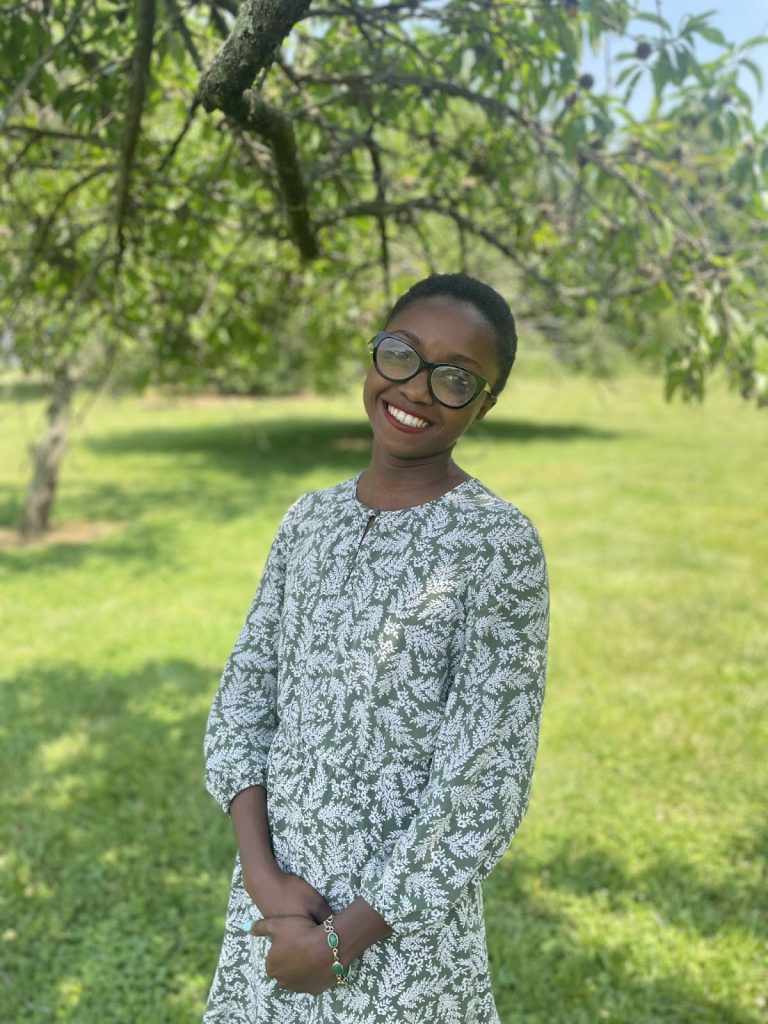Bringing history of the underrepresented to light
A Q&A with Inclusive History Researcher Jeanette Bendolph
Jeanette Bendolph recently joined the Delaware Division of Historical and Cultural Affairs as its inclusive history researcher, and has a lot of information to share about her work and plans for her position. The Camden resident is a University of Delaware graduate with a bachelor’s degree in history and minors in Africana studies and museum studies. She received her master’s degree in history, with a concentration on public history, from Temple University.

Describe your current position and work with the division.
I am currently stationed at the John Dickinson Plantation (JDP) in Dover. My position involves research on the political, social and economic histories of enslaved and free Black Americans who lived at the JDP as well as those who lived in Delaware in the 18th and 19th centuries. Aligned with my research are cataloging and organizational duties in which I help to compile, conserve and locate historic documents housed at the John Dickinson Plantation.
What got you interested in a history career?
Growing up, I was immersed in history as my mother, father and I spent many evening hours discussing multiple eras, events and facets of American history. My parents also shared with me several influential personal histories as well, delineating their experiences as Black Americans living during and impacted by America’s Jim Crow Era. Their histories, filled with a mixture of triumphs, hardships and perseverance illustrated the importance of acknowledging the truth about the past to better our future. Alongside nights filled with oral history were the history lessons I received in school. A few instructors, with their honest and genuine efforts to educate their students about history, enlightened and encouraged me to take up a career grounded in history as well.
What’s been the most compelling part of your work on the Plantation Stories Project?
The most compelling part of my work on this project has been the increasing progress being made in providing fuller historic narratives of people who for centuries were not considered documentable in Delaware’s history. The progress being made on the Plantation Stories Project gives me hope that historic practices will continue to improve nationwide as the histories of the underrepresented are brought to light in a variety of forms.
How has your work impacted you personally?
To know that I am involved in a project vital to the acknowledgment of formerly overlooked histories is something that I hold dear to my heart. My father is no longer with us, but I know that he is proud of the work being done for the Plantation Stories Project as I and other staff continue to include stories that were for so long left out of the site’s central narrative.
What do you want people to know about projects like the Plantation Stories Project?
When viewing the names of the enslaved and free Black populations at the JDP and while learning about the Plantation Stories Project, you may feel a variety of emotions. History can often be emotionally laborious, as this project has proven to be for me. Though emotionally impactful, the Plantation Stories Project is important to continue as it outwardly displays the family ties of the enslaved and free Black populations who lived at the JDP while simultaneously humanizing them: a task that did not receive as much volume or attention in the past. Information within the project will also help to make historic connections with relatives of those who lived, labored, and were held in bondage here. Documentation within the project can also lead to further discovery of historic connections to the site which cross JDP lines, thus bolstering narratives of enslavement in Delaware.
What do you like to do for fun?
I like to hike, swim, visit the beach, travel, paint and play video games for fun!
What else do you want people to know about you and/or your work?
Though many segments of history can be uncomfortable to witness and learn about, I will never shy away from historic education and projects which present all angles of history. Projects such as the Plantation Stories Project illustrate how many American citizens were frequently and openly disregarded as citizens, and more importantly, as people. This very disregard led to an unfortunate dearth of historical narratives regarding these populations, many of their stories being highly undocumented, piecemeal or untraceable today. I intend to counteract this reality with both my current project and future endeavors by utilizing my efforts as a historian to present to the world truthful and unbiased history.


